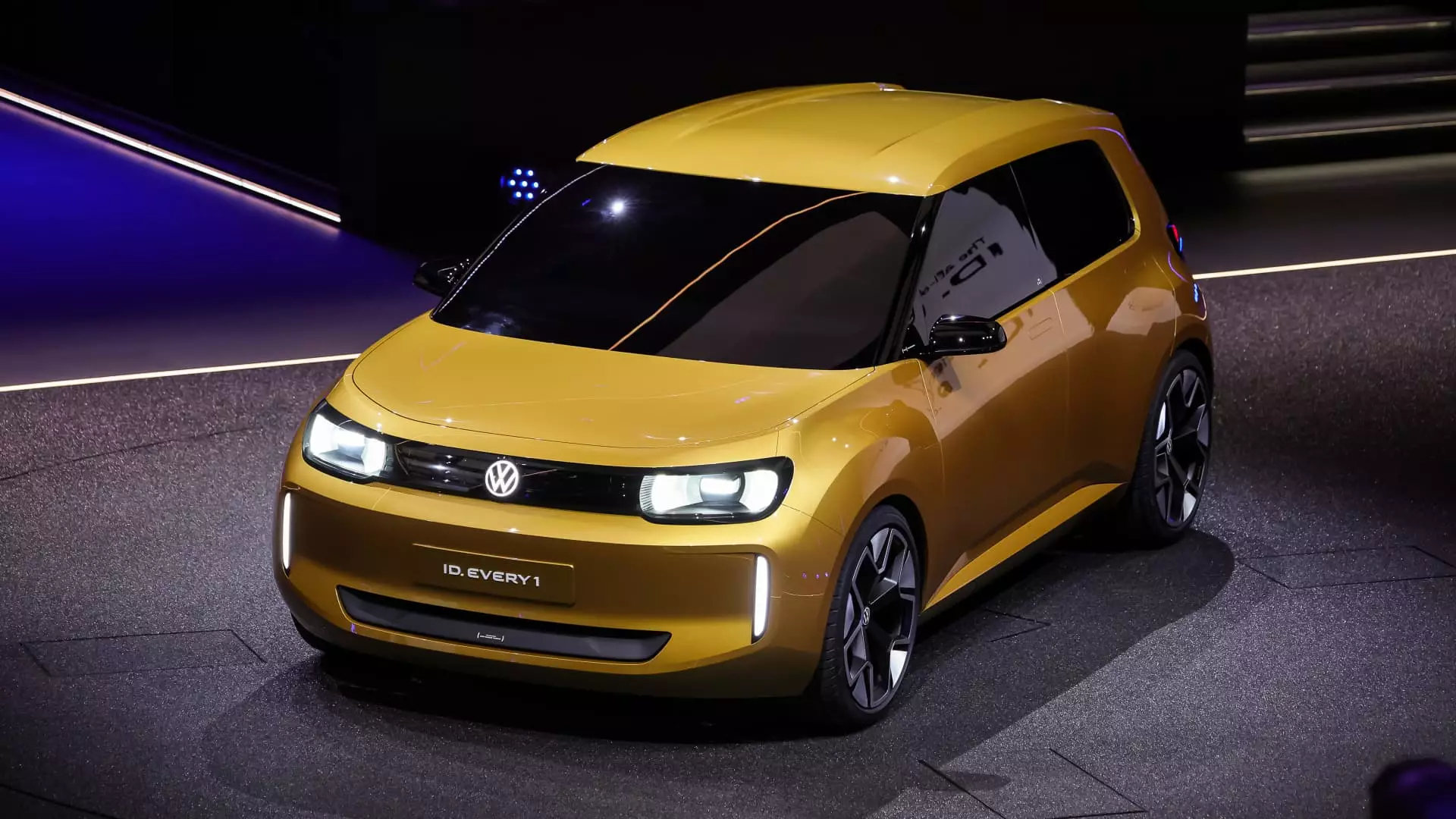Volkswagen, the iconic German automotive powerhouse, recently unveiled its annual operating profit, revealing a staggering 15% decrease year-on-year. As the automotive landscape continues to evolve, Volkswagen finds itself grappling with escalating costs and what the company described as “extraordinary expenses” linked to its restructuring efforts. This doesn’t merely reflect a once-off issue; it serves as a stark reminder of the extensive challenges facing traditional automakers striving to integrate innovative technologies while also adhering to environmental and regulatory demands.
For a company of Volkswagen’s stature, a 15% plunge in operating profit is alarming. The result indicates that despite achieving a revenue of 324.7 billion euros ($352.8 billion) in full-year 2024—up marginally from 322.3 billion euros the previous year—the rising costs associated with transitioning towards electrification are eating into profitability. This financial reality raises serious questions about the long-term sustainability of its strategies. Are they too slow in adapting, or is the market simply moving faster than they anticipated?
Sales Performance and Future Expectations
Despite the drop in operating profit, Volkswagen maintained that its performance in a challenging market was commendable. However, one cannot ignore the reality of a 3.5% dip in vehicle sales throughout 2024. This decline signifies an ongoing struggle not just for Volkswagen, but for the auto industry as a whole. As climate concerns grow, consumer preferences are rapidly shifting, leaving companies like Volkswagen searching for new ways to appeal to an evolving market.
The company’s optimistic outlook for 2025, predicting a potential sales revenue increase of up to 5%, feels overly optimistic in the face of substantial headwinds. Venturing into uncharted territory means the company will have to navigate increasing competition from electric vehicle (EV) manufacturers and conform to stringent emissions standards. The 5.5% to 6.5% forecasted operating margin leaves much to be desired, especially when juxtaposed with the realities of profit retention in a rapidly changing landscape.
Challenges on the Horizon
One of the more disconcerting aspects of Volkswagen’s earnings report was its candid acknowledgment of the mounting challenges it faces. The prominent mention of “political uncertainty, increasing trade restrictions, and geopolitical tensions” encapsulates the complex web in which multinational corporations operate. Navigating tariffs, especially considering the unpredictable nature of political climates, proves to be an uneasy task for a company with significant global interests. Volkswagen’s reliance on open markets could backfire if tensions escalate further, particularly with the United States.
Despite these challenges, the company’s Chief Financial Officer, Arno Antlitz, expressed a certain resignation about the current performance levels, noting, “we can’t be happy.” This sentiment reflects a broader acknowledgment within the industry that substantial progress must be made, not only in EV adoption but in retaining core combustion engine models that still drive significant portions of revenue.
The Path Forward: A Balancing Act
Volkswagen’s commitment to electrification, digitalization, and software development highlights an ambitious roadmap. However, this requires significant upfront investment that weighs heavily on immediate financial goals. There is a palpable tension between maintaining competitiveness in legacy internal combustion engine markets while simultaneously ramping up EV capabilities. The balancing act will undoubtedly impact operational efficiencies and profit margins.
In the quest to defend its 25% market share in Europe and expand its presence in America, Volkswagen risks being caught in the crossfire of aggressive competition. The landscape is not just about the transition to electric vehicles but also about innovative customer engagement and bolstering brand loyalty amid ever-increasing alternatives. If the company’s strategies are miscalibrated, they could jeopardize their market position.
Ultimately, Volkswagen stands at a crossroads. It has the resources and brand strength to revolutionize its identity, but the path it chooses will define its legacy in an increasingly electrified future. The pressing need for agile responses to market demands is clearer than ever, and how effectively Volkswagen navigates these changes will determine whether it can retain its status as a global leader in the automotive industry.

